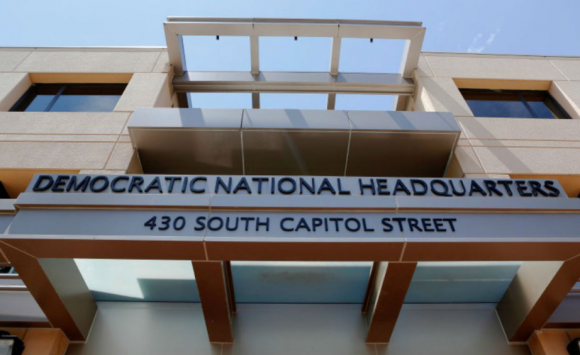Over the past few days, several longtime readers have asked why I haven’t written about two stories that have consumed the news media of late: The alleged Russian hacking attacks against the U.S. Democratic National Committee (DNC) and, more recently, the discovery of malware on a laptop at a Vermont power utility that has been attributed to Russian hacker groups.
I’ve avoided covering these stories mainly because I don’t have any original reporting to add to them, and because I generally avoid chasing the story of the day — preferring instead to focus on producing original journalism on cybercrime and computer security.
 But there is another reason for my reticence: Both of these stories are so politically fraught that to write about them means signing up for gobs of vitriolic hate mail from readers who assume I have some political axe to grind no matter what I publish on the matter.
But there is another reason for my reticence: Both of these stories are so politically fraught that to write about them means signing up for gobs of vitriolic hate mail from readers who assume I have some political axe to grind no matter what I publish on the matter.
An article in Rolling Stone over the weekend aptly captures my unease with reporting on both of these stories in the absence of new, useful information (the following quote refers specifically to the Obama administration’s sanctions against Russia related to the DNC incident).
“The problem with this story is that, like the Iraq-WMD mess, it takes place in the middle of a highly politicized environment during which the motives of all the relevant actors are suspect,” Rolling Stone political reporter Matt Taibbi wrote. “Absent independent verification, reporters will have to rely upon the secret assessments of intelligence agencies to cover the story at all. Many reporters I know are quietly freaking out about having to go through that again.”
Alas, one can only nurse a New Year’s holiday vacation for so long. Here are some of the things I’ve been ruminating about over the past few days regarding each of these topics. Please be kind.
Gaining sufficient public support for a conclusion that other countries are responsible for hacking important U.S. assets can be difficult – even when the alleged aggressor is already despised and denounced by the entire civilized world.
The remarkable hacking of Sony Pictures Entertainment in late 2014 and the Obama administration’s quick fingering of hackers in North Korea as the culprits is a prime example: When the Obama administration released its findings that North Korean hackers were responsible for breaking into SPE, few security experts I spoke to about the incident were convinced by the intelligence data coming from the White House.
That seemed to change somewhat following the leak of a National Security Agency document which suggested the United States had planted malware capable of tracking the inner workings of the computers and networks used by the North’s hackers. Nevertheless, I’d wager that if we took a scientific poll among computer security experts today, a fair percentage of them probably still strongly doubt the administration’s conclusions.
If you were to ask those doubting experts to explain why they persist in their unbelief, my guess is you would find these folks break down largely into two camps: Those who believe the administration will never release any really detailed (and likely classified) information needed to draw a more definitive conclusion, and those who because of their political leanings tend to disbelieve virtually everything that comes out of the current administration.
Now, the American public is being asked to accept the White House’s technical assessment of another international hacking incident, only this time the apparent intention of said hacking is nothing less than to influence the outcome of a historically divisive presidential election in which the sitting party lost.
It probably doesn’t matter how many indicators of compromise and digital fingerprints the Obama administration releases on this incident: Chances are decent that if you asked a panel of security experts a year from now whether the march of time and additional data points released or leaked in the interim have influenced their opinion, you’ll find them just as evenly divided as they are today.
The mixed messages coming from the camp of President-elect Trump haven’t added any clarity to the matter, either. Trump has publicly mocked American intelligence assessments that Russia meddled with the U.S. election on his behalf, and said recently that he doubts the U.S. government can be certain it was hackers backed by the Russian government who hacked and leaked emails from the DNC.
However, one of Trump’s top advisers — former CIA Director James Woolsey — now says he believes the Russians (and possibly others) were in fact involved in the DNC hack.
It’s worth noting that the U.S. government has offered some additional perspective on why it is so confident in its conclusion that Russian military intelligence services were involved in the DNC hack. A White House fact sheet published alongside the FBI/DHS Joint Analysis Report (PDF) says the report “includes information on computers around the world that Russian intelligence services have co-opted without the knowledge of their owners in order conduct their malicious activity in a way that makes it difficult to trace back to Russia. In some cases, the cybersecurity community was aware of this infrastructure, in other cases, this information is newly declassified by the U.S. government.”
